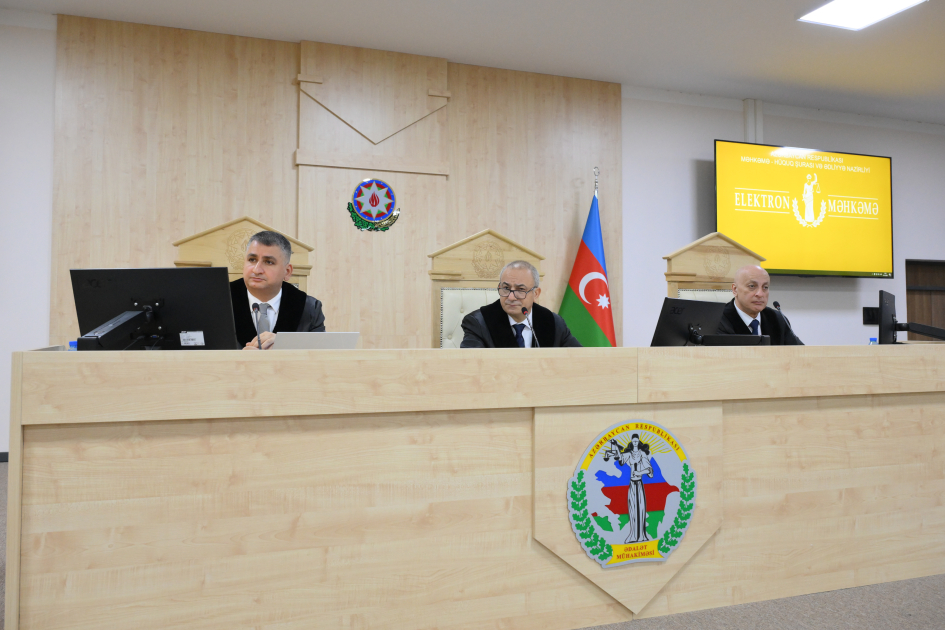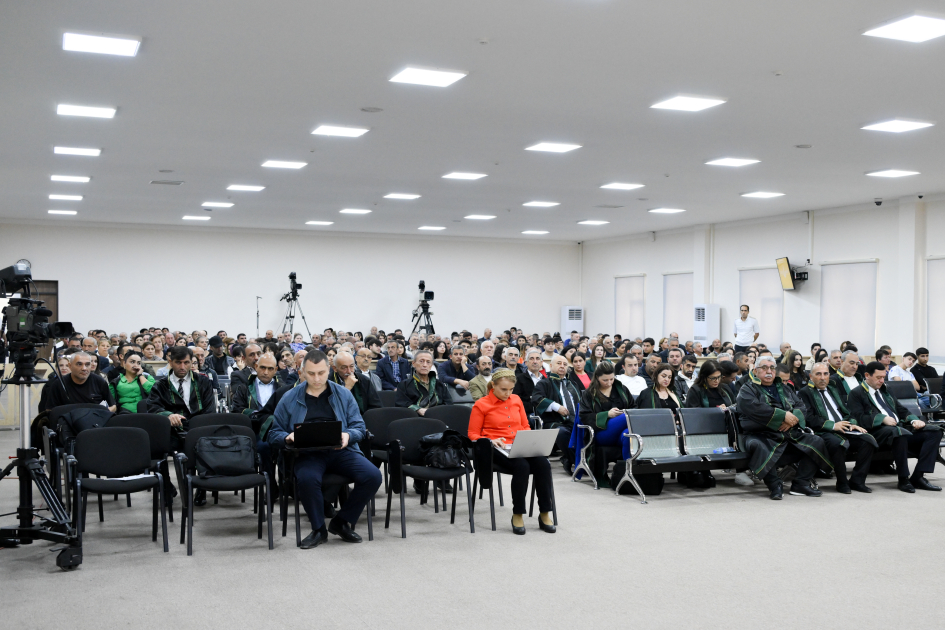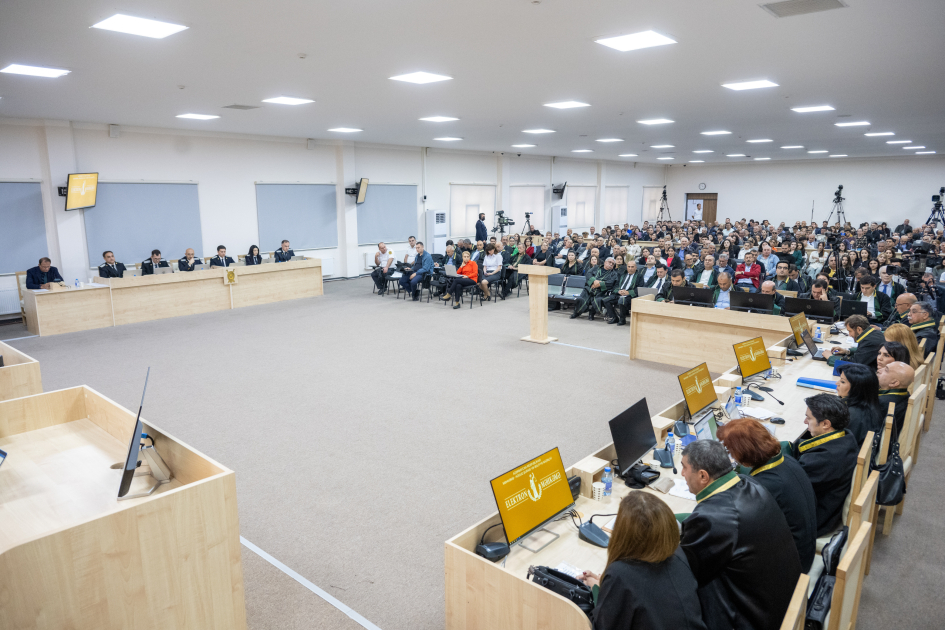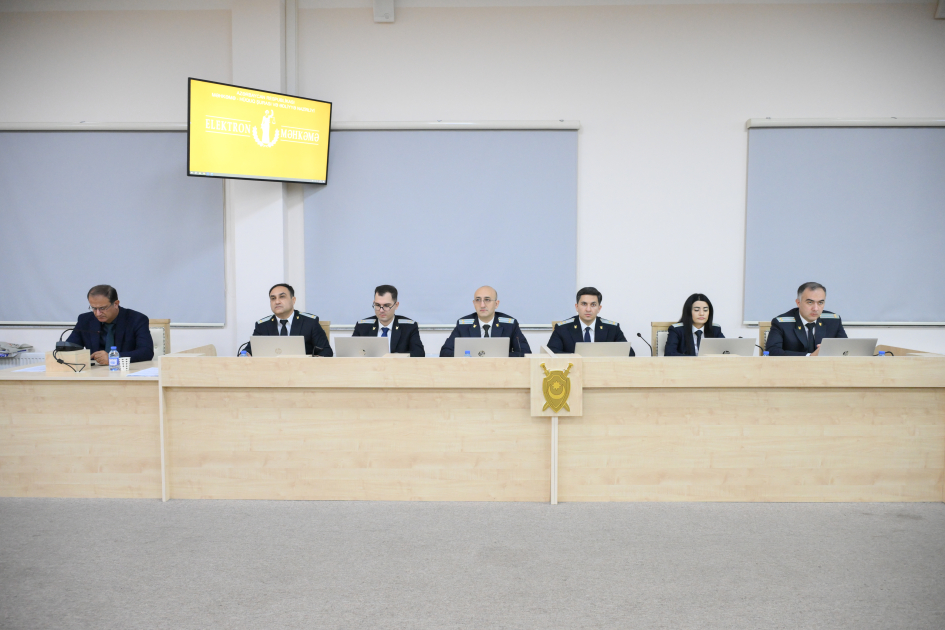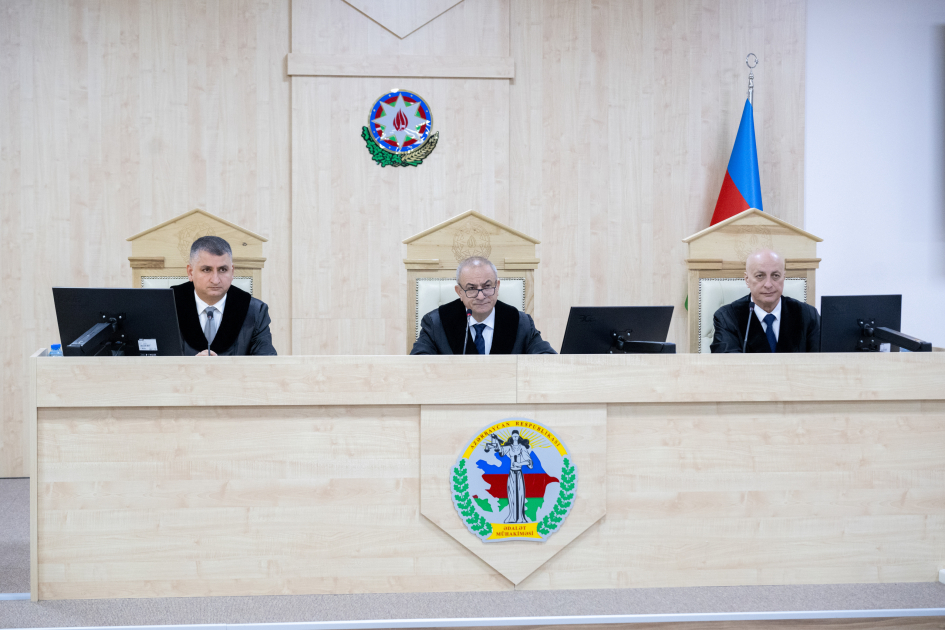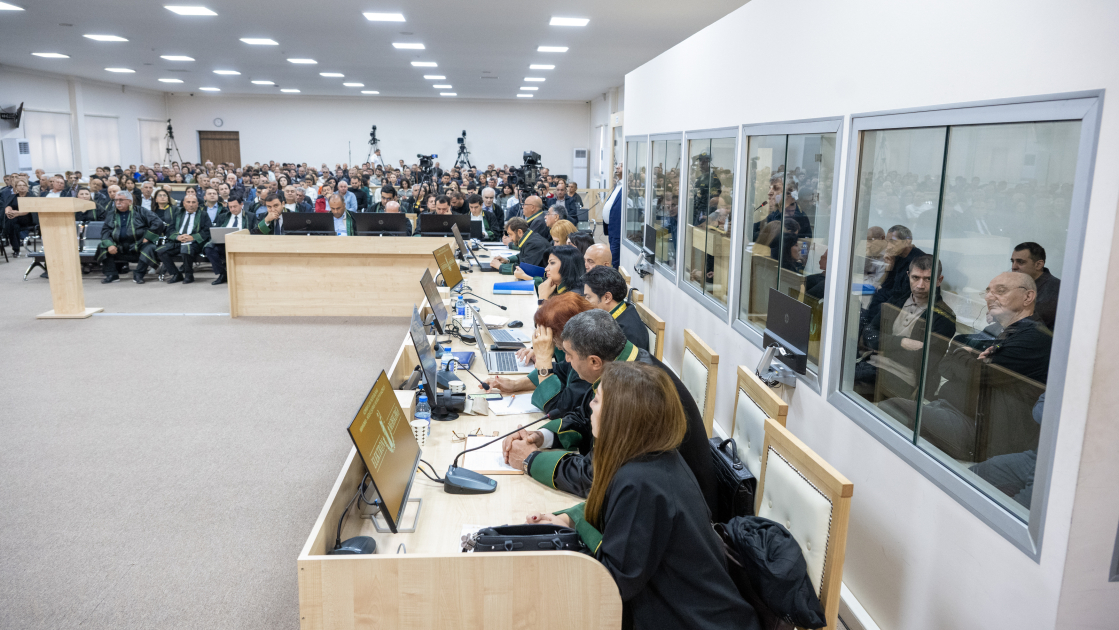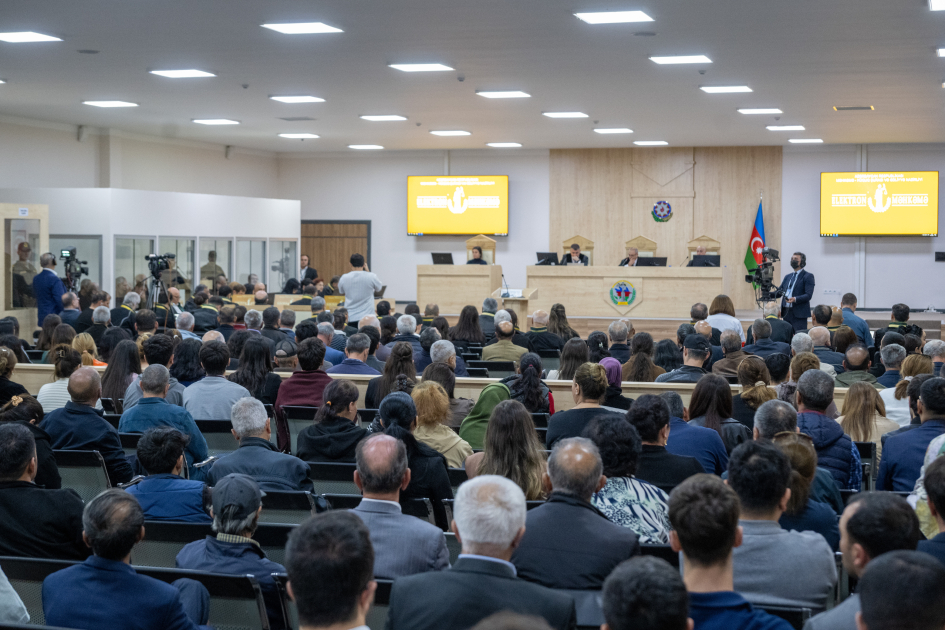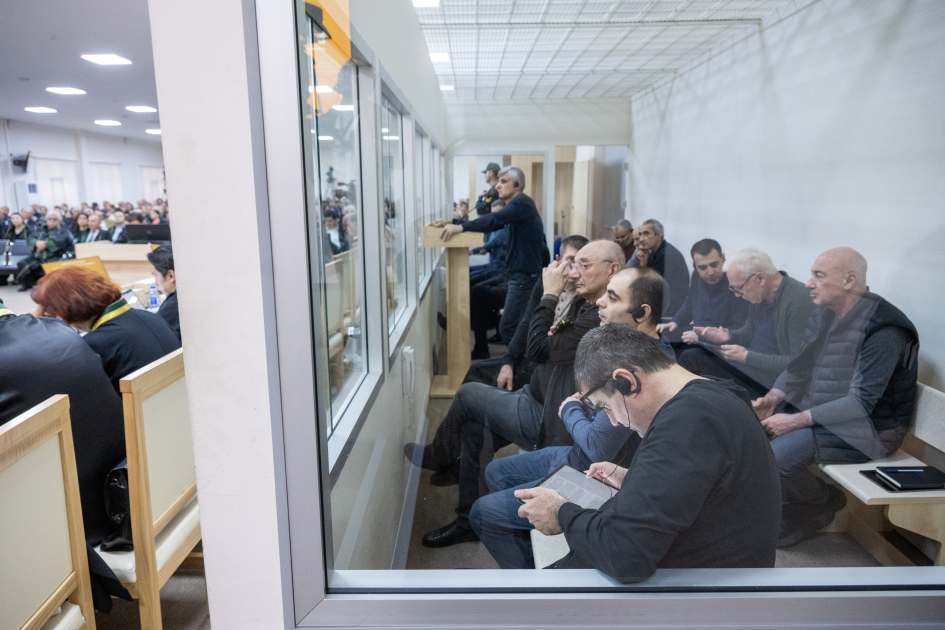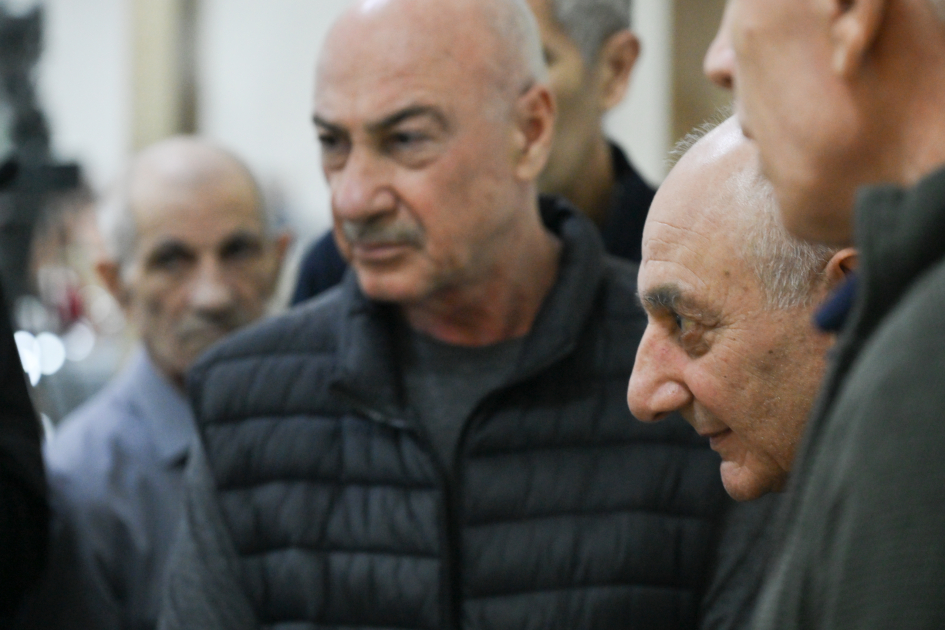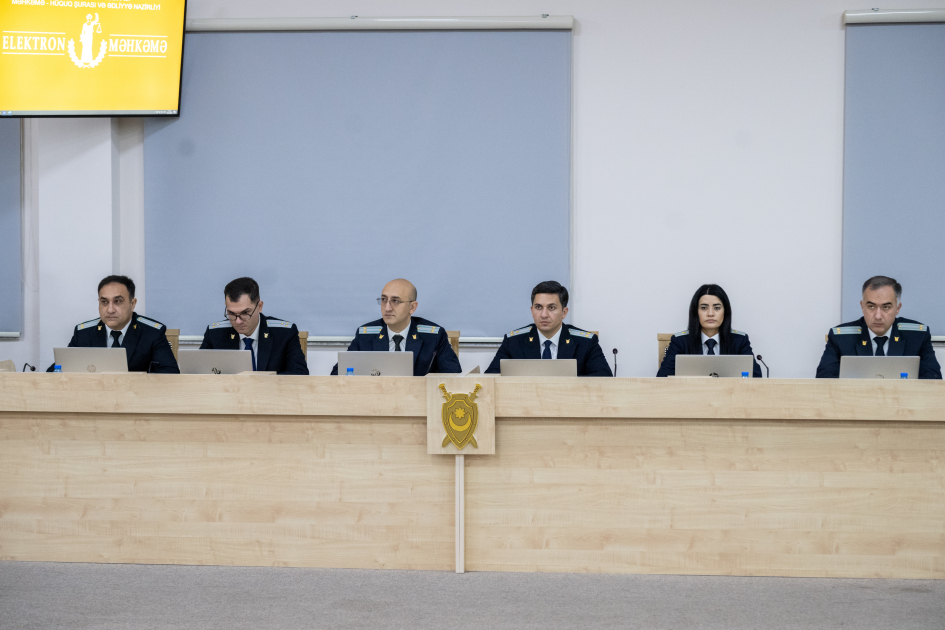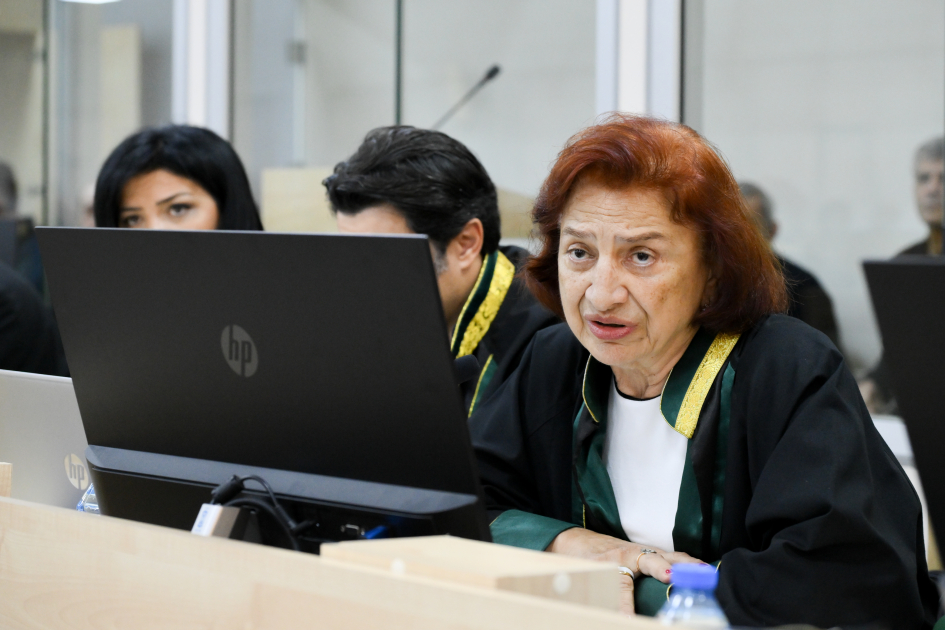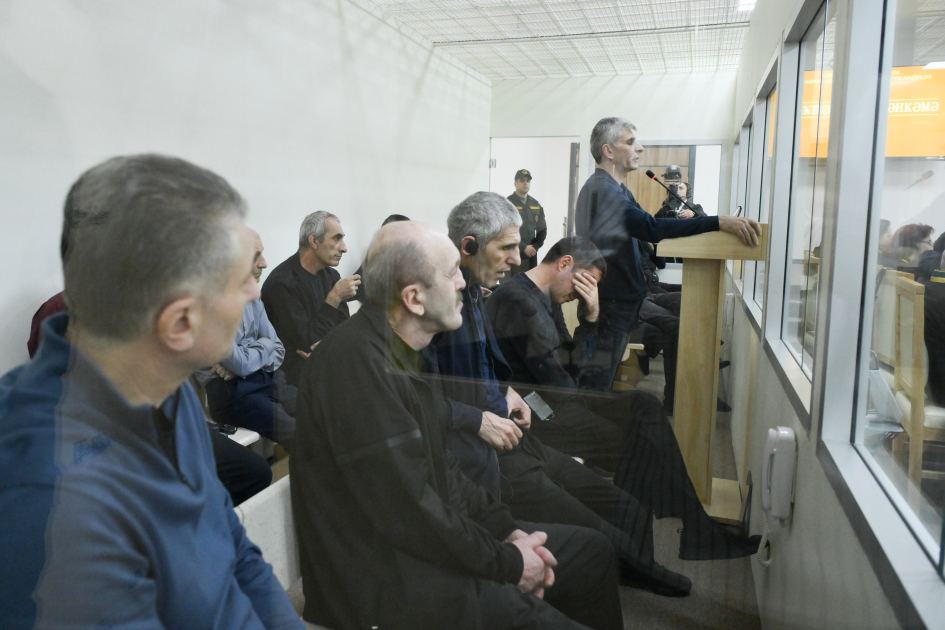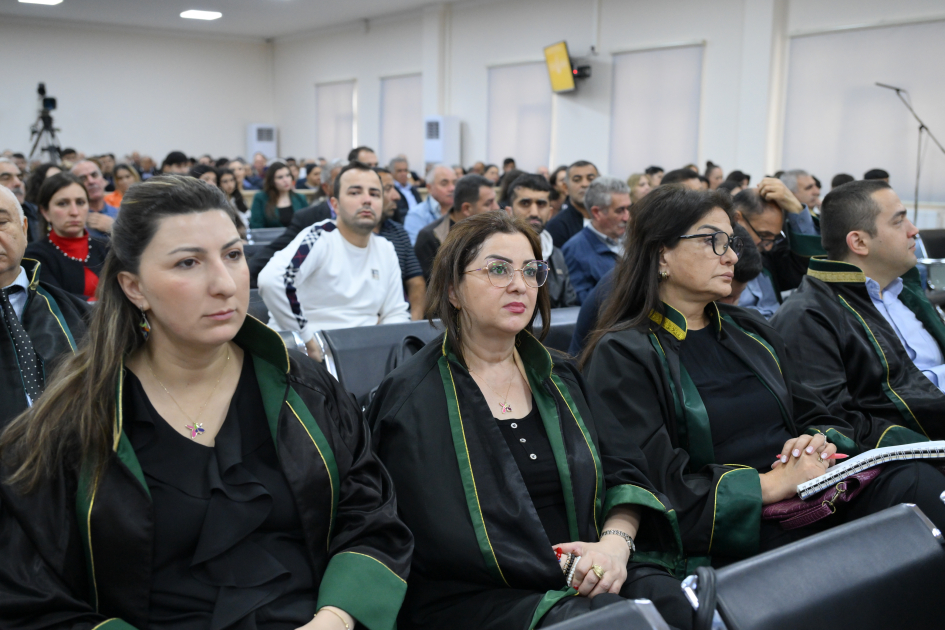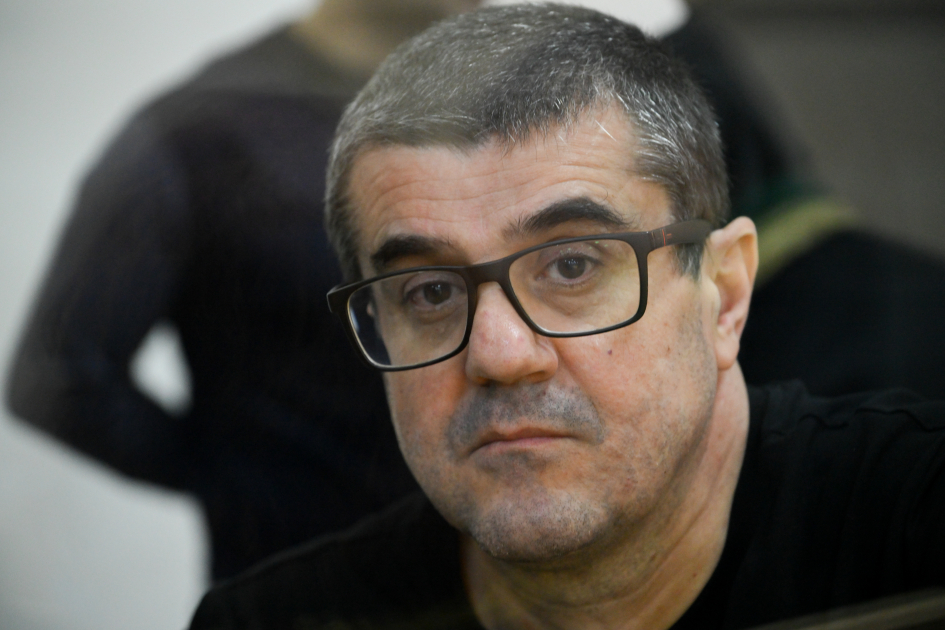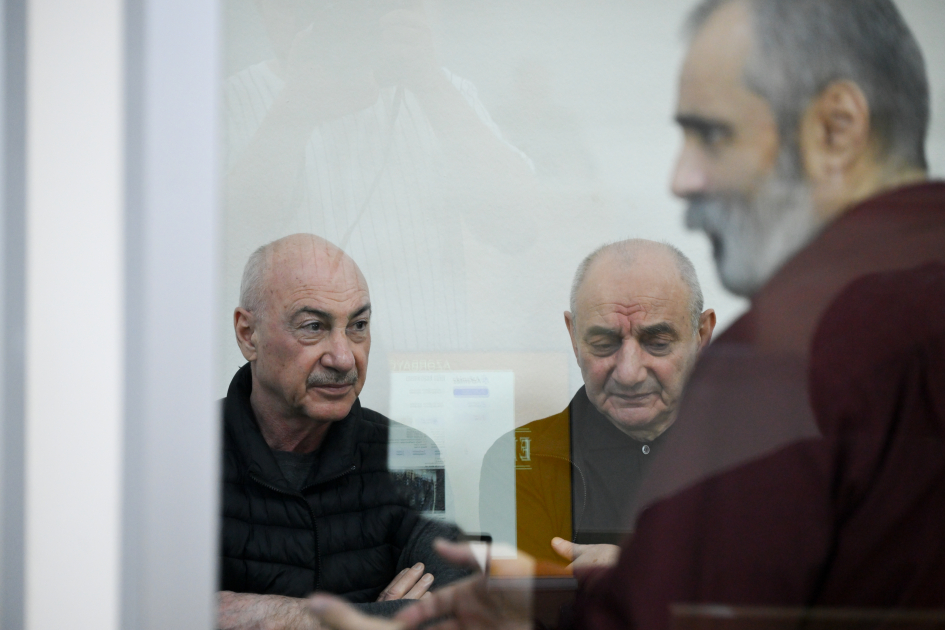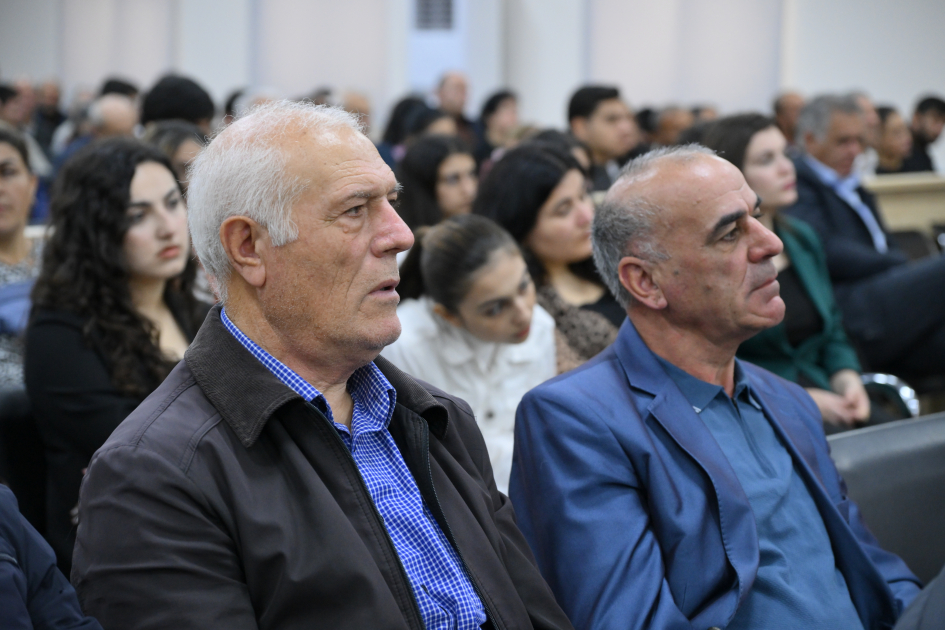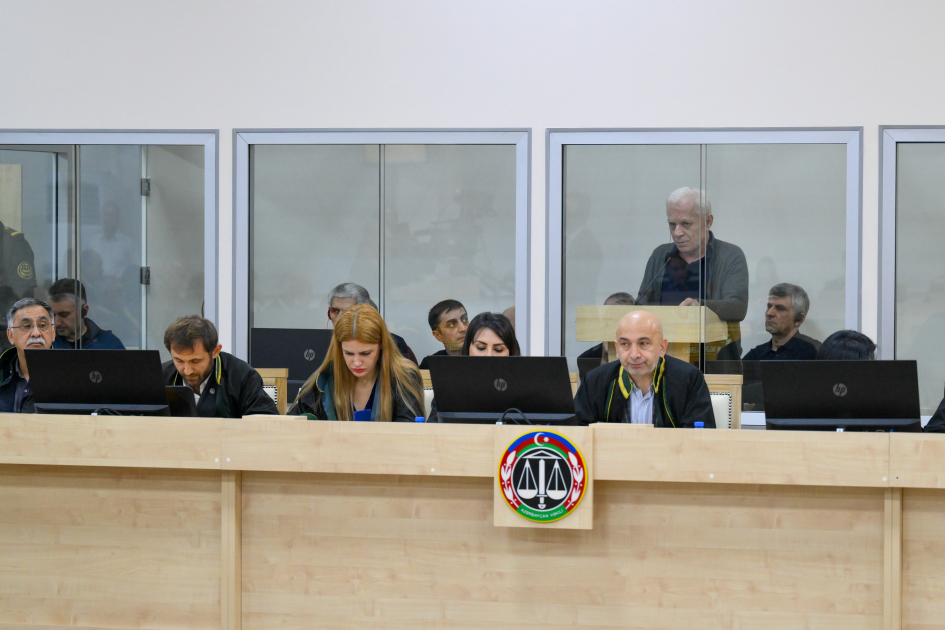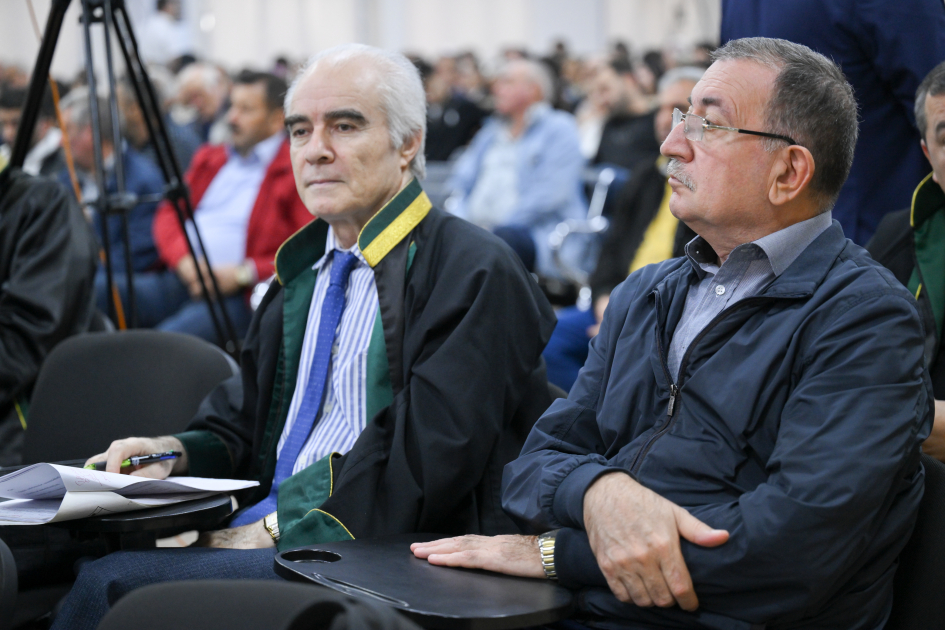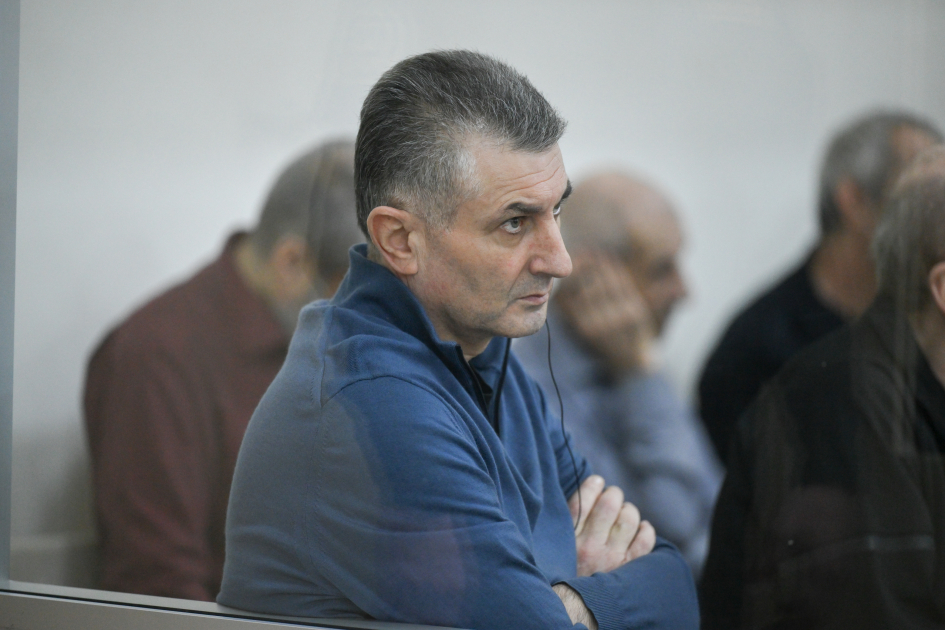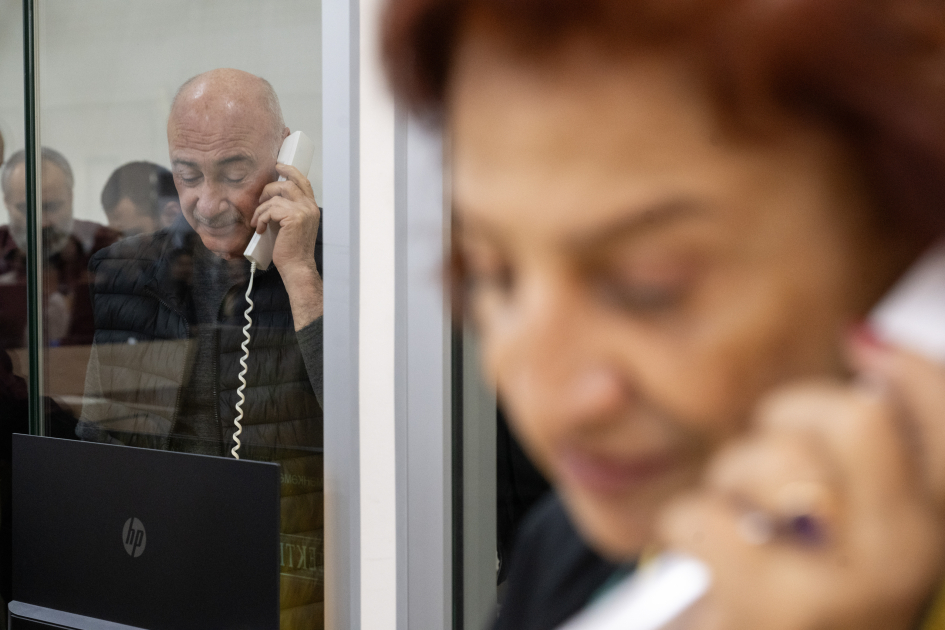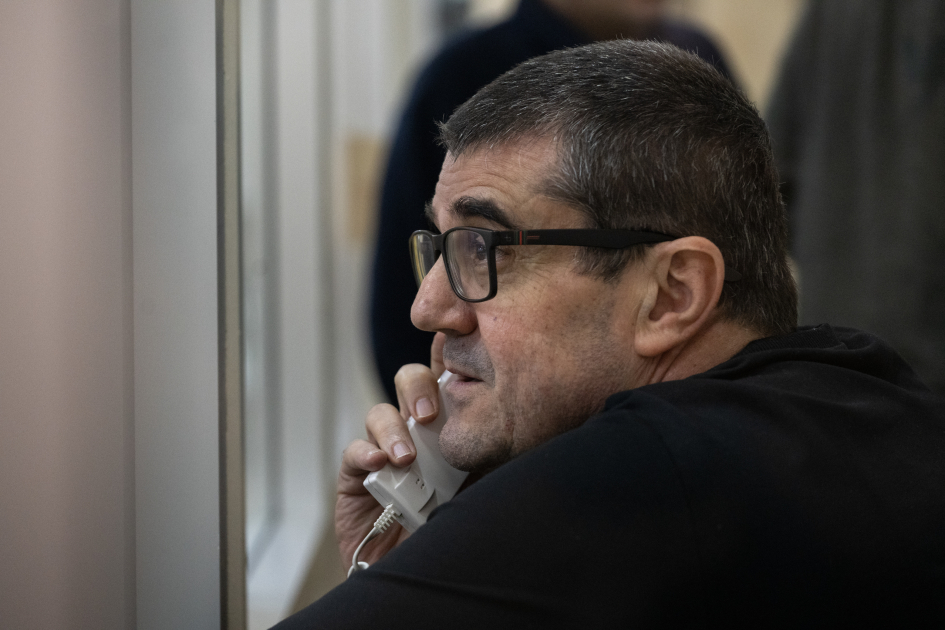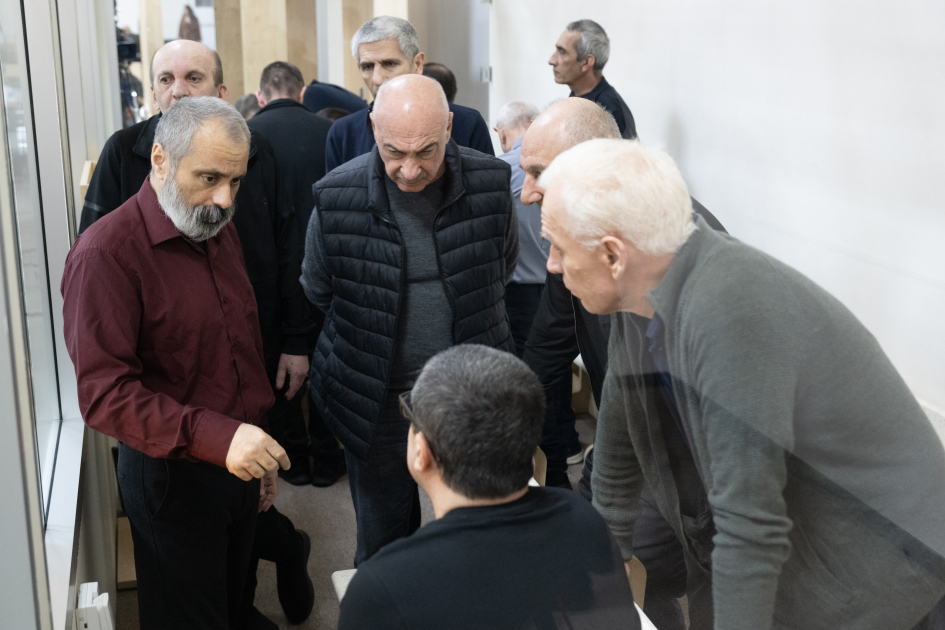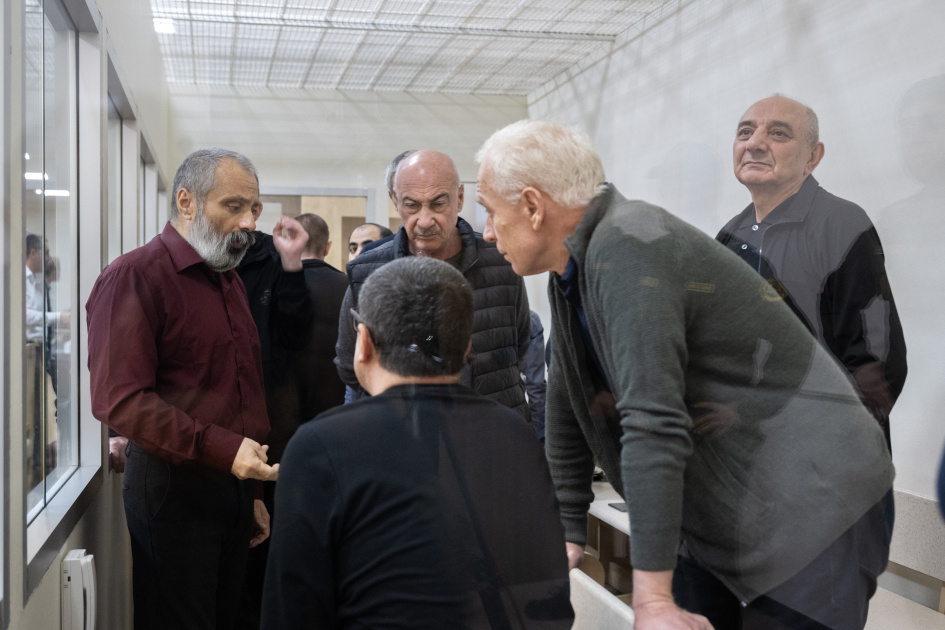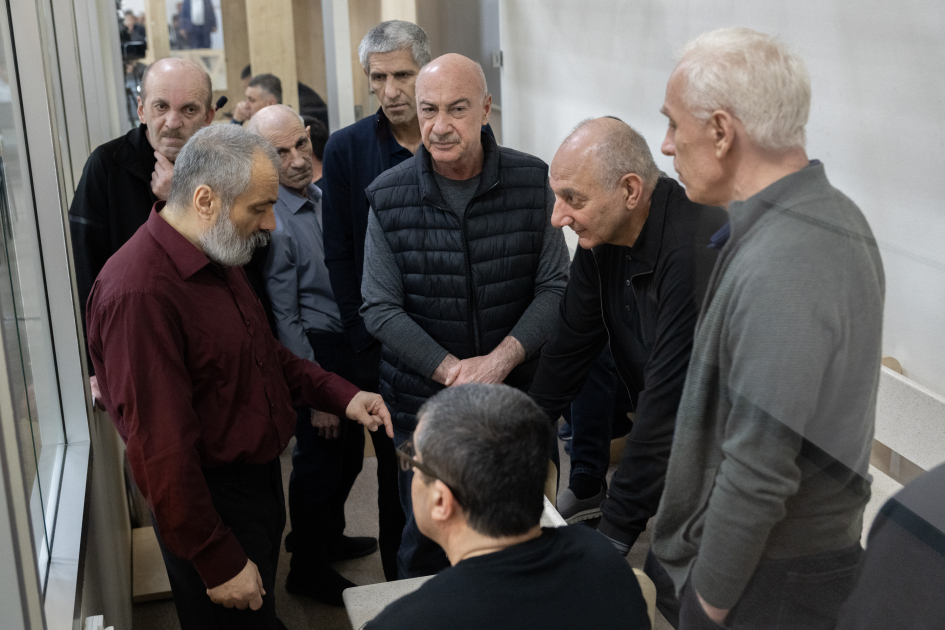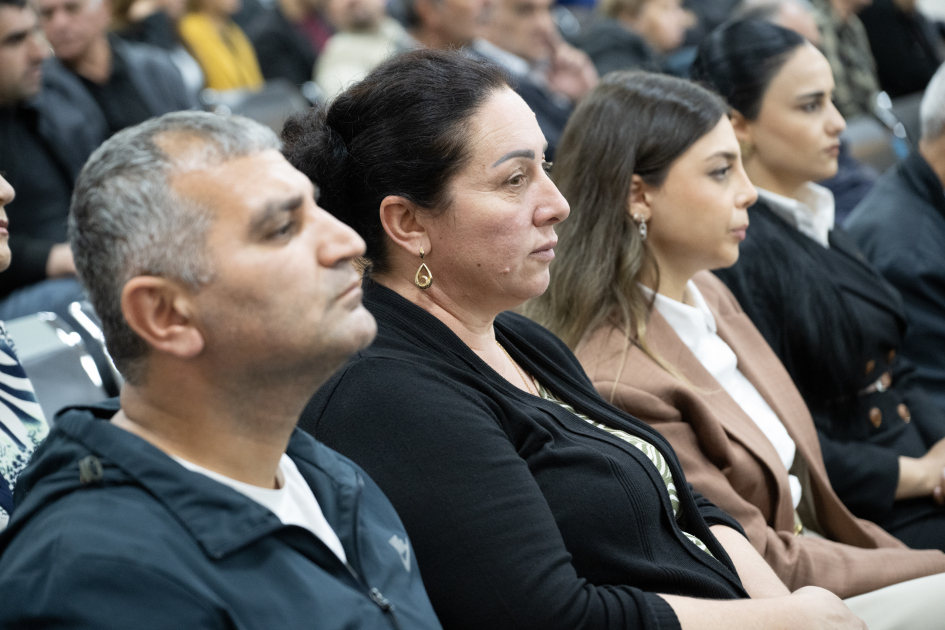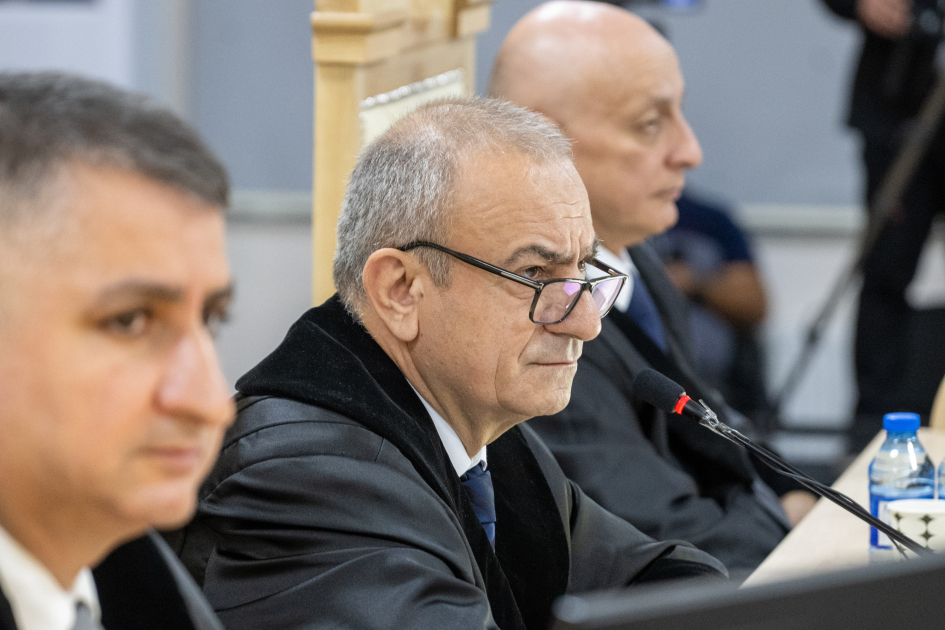BAKU, Azerbaijan, October 16. The open court hearing session for criminal cases against citizens of the Republic of Armenia, including Arayik Harutyunyan, Arkadi Ghukasyan, Bako Sahakyan, Davit Ishkhanian, David Babayan, Levon Mnatsakanyan, and others, who are accused of crimes against peace and humanity, war crimes—including the preparation and conduct of aggressive war, genocide, violation of the laws and customs of war—as well as terrorism, financing of terrorism, forcible seizure of power, forcible retention of power, and numerous other crimes resulting from Armenia's military aggression against Azerbaijan, continued on October 16, Trend reports.
The court session was held at the Baku Military Court, chaired by Judge Zeynal Agayev, with the panel consisting of Jamal Ramazanov and Anar Rzayev (reserve judge Gunel Samadova). Each accused individual was provided with an interpreter in their native language, as well as legal representatives for their defense.
The session was attended by the accused persons, their defenders, a portion of the victims, their legal heirs and representatives, as well as prosecutors defending the state prosecution.
The first to speak was accused Davit Ishkhanian, who made a motion regarding the shortening of the reading of documents related to damage to movable and immovable property and cultural values, and the provision to them of a copy of the document signed by Kamo Vardanyan, "chief of staff of the army of the Artsakh regime."
Presiding over the session, Zeynal Agayev stated that the examination of the documents is currently underway, that a copy of the mentioned document is available on the tablets provided to the accused persons, and that printed versions of the documents will be provided to the accused and their representatives.
It was then announced that, based on accused Levon Mnatsakanyan's previous motion from an earlier court session, victim Ilham Mammadov was summoned to the court again.
Mammadov answered questions addressed to him by the accused persons.
In addition to questions from Mnatsakanyan, Mammadov also responded to questions from David Babayan and David Manukyan. He stated that he had spoken in detail about the tortures inflicted on him by Armenian armed forces soldiers during his capture at the court session held on October 2 this year.
He noted that on May 10, 2002, while serving in the military and en route to his post, he lost his way and was captured by Armenian armed forces soldiers, subjecting him to torture. "I was held in a room there, there were other officers too, and I was interrogated," he added.
Responding to a question about when and on what basis the degree of disability was granted, the victim explained that he was subjected to torture and sustained injuries while in captivity. The degree of disability was granted for this reason.
In response to a question about whether an offer to leave for a foreign country was made to him during his captivity and, if so, by whom, I. Mammadov noted that although such an offer was made, he did not agree to it. He also does not know the person who made the offer.
Mnatsakanyan then stated that he would speak in detail about the events that occurred at that time at the next court session.
State prosecutor Fuad Musayev pointed out that L. Mnatsakanyan, on one hand, claims not to have seen I. Mammadov, but on the other hand, says he will speak in detail about it. If he does not know I. Mammadov, then how does he know what happened there at that time?
Mnatsakanyan clarified that he does not know Mammadov personally, but he will discuss the events that occurred at that time.
The court session then continued with the announcement of documents.
First, a document on damage to the economy and economic losses was announced at the session.
It was noted that as a result of Armenia's military aggression, the economic activities of the country's business entities in the Azerbaijani territories directly affected by the war and under occupation completely ceased, the region's economic resources were illegally exploited by Armenia (including through the sale of exploitation rights over natural resources to foreign companies), and the Azerbaijani economy—along with the population, institutions, and the state—faced significant damage and losses.
Furthermore, as a result of Armenia's military aggression against Azerbaijan and the occupation of territories, for nearly 30 years, mineral raw material reserves located in those lands were illegally exploited by Armenia, generating substantial illegal income and inflicting major economic damage on Azerbaijan.
During the occupation period, illegal exploitation operations were carried out in both placer and hard rock deposits, and all types of groundwater reserves were illegally utilized.
The documents indicate that in the territories occupied by Armenia, hydroelectric power plants belonging to Azerbaijan were illegally operated by occupying forces without adhering to any environmental standards, producing electricity. Additionally, the completion of hydroelectric power plants under construction became impossible. As a result, Azerbaijan suffered significant economic losses in the hydroelectric power generation sector.
In addition, as a result of Armenia’s military aggression, agricultural activities were rendered impossible in the occupied Azerbaijani territories, leading to significant economic losses for both the population and the state.
The document titled “Damage Caused by Contamination with Mines and Unexploded Ordnance” states that during Armenia’s military aggression and occupation of Azerbaijani territories, hundreds of thousands of mines were buried, and vast areas were contaminated with unexploded ordnance. As a result, the full reintegration of the liberated territories into the rest of Azerbaijan requires a prolonged period and substantial financial resources.
Regarding environmental damage, the document notes that in the Azerbaijani territories occupied by Armenia, forests, nature reserves, and ancient trees were destroyed, and significant harm was inflicted on Azerbaijan’s fauna, flora, and water basins.
Subsequently, documents concerning criminal groups were examined. The materials indicate that the criminal group “Yerkrapa” (“Volunteers”) was established in the 1990s and was one of the first illegal armed groups in Armenia. It was founded in 1993 by Armenia’s then-Defense Minister Vazgen Sargsyan. This group actively participated in the fighting during the occupation of Azerbaijani territories by Armenian armed forces.
Furthermore, during the court proceedings, information was disclosed about other criminal groups involved in the occupation of Azerbaijan’s sovereign territories by Armenian armed forces, including “Crusaders,” “Malatia Volunteers,” “Mush,” “Arabo,” “Sasna Tsrer,” “Sasuntsi Davit,” “Volunteer Militia Political-Military Union of the Independence Army,” and others.
During the court session, documents based on information from various internet resources, including social media, were also examined. Additionally, photographs related to the reviewed documents were presented.
The court proceedings will continue on October 17.
Fifteen defendants of Armenian origin are accused in the criminal case concerning numerous crimes committed during the aggressive war waged by the Armenian state - including the aforementioned criminal association - on the territory of Azerbaijan, in violation of domestic and international legal norms. These crimes were committed for the purpose of military aggression against Azerbaijan and were carried out under the direct leadership and participation of the Armenian state, officials of its state institutions, its armed forces, and illegal armed formations, through their written and verbal orders, instructions, and guidelines; material, technical, and personnel support; centralized management; as well as under strict control and under the leadership and direct or indirect participation of Robert Sedraki Kocharyan, Serzh Azati Sargsyan, Vazgen Mikaeli Manukyan, Vazgen Zaveni Sargsyan, Samvel Andraniki Babayan, Vitali Mikaeli Balasanyan, Zori Hayki Balayan, Seyran Musheghi Ohanyan, Arshavir Surenovich Garamyan, Monte Charles Melkonyan, and others.
The following individuals - Arayik Vladimiri Harutyunyan, Arkadi Arshaviri Ghukasyan, Bako Sahaki Sahakyan, Davit Rubeni Ishkhanyan, David Azatini Manukyan, David Klimi Babayan, Levon Henrikovich Mnatsakanyan, Vasili Ivani Beglaryan, Erik Roberti Ghazaryan, Davit Nelsoni Allahverdiyan, Gurgen Homeri Stepanyan, Levon Romiki Balayan, Madat Arakelovich Babayan, Garik Grigori Martirosyan, and Melikset Vladimiri Pashayan - are being charged under the following articles of the Criminal Code of the Republic of Azerbaijan: Article 100 (planning, preparing, initiating, and waging a war of aggression); Article 102 (attacking persons or organizations enjoying international protection); Article 103 (genocide); Article 105 (extermination of the population); Article 106 (enslavement); Article 107 (deportation or forced displacement of population); Article 109 (persecution); Article 110 (enforced disappearance of persons); Article 112 (deprivation of liberty contrary to international law); Article 113 (torture); Article 114 (mercenary service); Article 115 (violation of the laws and customs of warfare); Article 116 (violation of international humanitarian law during armed conflict); Article 118 (military robbery); Article 120 (intentional murder); Article 192 (illegal entrepreneurship); Article 214 (terrorism); Article 214-1 (financing terrorism); Article 218 (creation of a criminal organization); Article 228 (illegal acquisition, transfer, sale, storage, transportation, and possession of weapons, ammunition, explosives, and devices); Article 270-1 (acts threatening aviation security); Article 277 (assassination of a state official or public figure); Article 278 (forcible seizure and retention of power, forcible change of the constitutional structure of the state); Article 279 (creation of armed groups not provided for by law); and additional articles.

